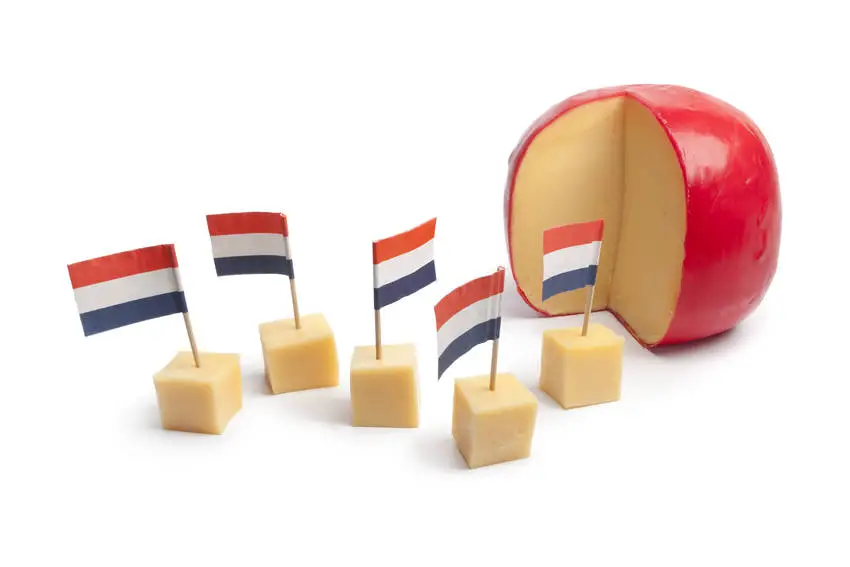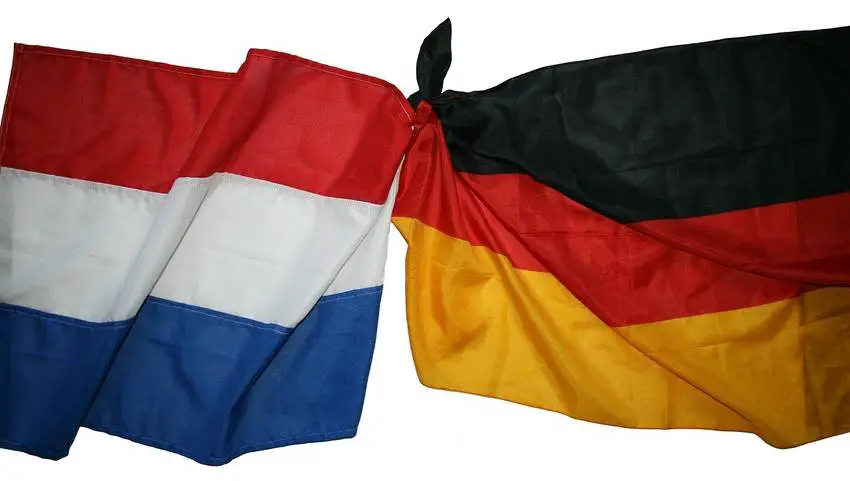Some of you may know that the language spoken in Holland is called Dutch or Nederlands for native speakers. However, German, in their language is Deutsch, very similar, right? What is the origin of these similarities? Why do we call it Dutch in English? Are Dutch and Deutsch the same?
Dutch is the English word for the language spoken in the Netherlands. It is called Nederlands. In the Middle Ages, during the trading with England, the Netherlands and Germany were considered one territory where Germanic languages were spoken. All of these languages were considered to be Dutch.

Nowadays, we know the language spoken in Germany is called German but the language spoken in the Netherlands has remained as Dutch. However, why is this the case? and what does exactly Dutch mean? Well, there are several theories, but for me, as a translator and linguist, there are many explanations that you can read more about in this article.
Origin of Dutch
In order to understand the origin of the word Dutch, we have to look for the territory where it was created, the fact that we are referring to an English term and how to people who speak that language call it or perceive it, what historical and geographic influence there has been and so on.
But for now, before we get into defining the origins of Dutch, we have to define some terms just in case, before things start getting complicated:
- Dutch is called Nederlands in Dutch
- Dutch or Nederlands is the language spoken in the Netherlands
- Deutsch is German
- Deutsch and Nederlands are not the same language, yet they have the same origin.

Both Dutch and German were originated in the same territory in Europe, one in the area of High German (Hochdeutsch) and the other in the language of Low German (Niederdeutsch). Together with English, they belong to the family of Germanic languages, which means they have all the same origin and therefore they share a lot of characteristics, including roots for certain words, mostly archaic ones.
During the Early Middle Ages these languages were already considered to be very different from one to the other, not being standardised yet but each of these became by default the most spoken language of a territory: in the case of the Lower Lands, Old Dutch was spoken in this area.
In the 15th Century, when these languages were being established in the territories that now have them as official languages, all these territories, the Netherlands, Germany as well as Belgium and Luxembourg were part of the Roman Empire.
In the case of the Lower Lands, it took until 1815 for the provinces to be recognised as the Kingdom of the Netherlands, and in the case of Germany, until the next century.
England and Dutch
The term Dutch is a word invented by English people to denominate the language spoken in the Netherlands, but before the Netherlands became a country, it was a word to refer also to German.
We don’t have to forget the importance of trading. All in all, the Netherlands was one of the main places for trading and commerce for (nowadays) Germany, who could communicate with Northern European countries and the Atlantic ocean through the Rhine river, having no option but to go through the Netherlands.

The same way, England was in constant communication with both areas and the language spoken there was described as Dutch: or how they say it in Germany, Hochdeutsch (High German, spoken in the Higher lands) and Niederdeutsch (spoken in the lower lands, including the current Netherlands territory).
Therefore, Deutsch was the word used to describe these languages and this evolved into Dutch. Since most of the trading was done with the Netherlands anyway, this was directly associated with them.
Meanings of Dutch
Besides being the official language spoken in the Netherlands, English speakers have come up with many meanings for the word Dutch. Some of the most commonly used ones are:
- Dutch: Language is spoken in the Netherlands
- Dutch: Person born in the Netherlands
- Dutch: archaic way of referring to people from Germany
- Going Dutch: splitting a bill half and a half, also very common among Dutch people.
- In Dutch: in trouble…
Moreover, the origin of the word from an etymological point of view comes from the Indo-European (same as all the Germanic languages) and it means “people”. This is why Germany in German is called Deutschland, meaning the land of the people. This is not the same as Dutch but it is the primary origin of it.
Diving more into the meaning of the word we could follow the root and desinence and understand more about it. But it is already a good enough explanation, right?
Where is Dutch Spoken?
Unlike what you may think, Dutch is not only a language spoken in the Netherlands. During the 18th Century, the Netherlands created one of the biggest empires ever constructed. It had colonies in America, Asia and Africa, including the European territories of the homeland.
Like many other European countries before the First World War in 1914-1918, having colonies did not only imply taking profit of all the natural and human resources all these territories have but also adopting and giving certain features and parts of the culture, including the implementation of the language.
Back in the day, these were the countries and territories that belong to the Dutch colonies:
- Sri Lanka (Ceylan)
- Taiwan
- Malacca
- Deshima in Japan
- New Holland in Australia
- Territories in Iran
- New Netherlands in the USA
- The Antilles in the Caribean
- Suriname
- Guyana
- Tobago
- Virgin Islands
- Congo Territories
- South African Territories
- Etc…
Nowadays, some of these territories have adopted Dutch as their official language or have evolved from there to develop their own like it is the case of South Africa.
The Dutch spoken territories in 2020 are:
- Northern provinces of Belgium
- Suriname in the Caribean
- Sint Maarten and the Dutch Antilles, also in the Caribean
- Aruba
- The Netherlands
- Canada, due to the big number of Dutch immigrants that still speak their mother tongue.
- Indonesia, as a second language or language of prestige.
Is Dutch the same as Flemish?
In case you didn’t know, Flemish is the language spoken in the Northern provinces of Belgium, an official language that shares so many characteristics in common with Dutch that some may say it is the same language.
From my perspective of a linguist, if all the varieties of Spanish spoken in the over 20 countries in Europe, Latin America and North America are considered to be only one language, then Dutch and Flemish should also consider to be the same language.
All the different connotations of considering one language the same one with all its varieties have more to do with politics and politics of language rather than with the actual language itself. However, it will always depend on who you are talking to: the speaker of the language may have their own opinion, linguists may have their own as well.
All in all, if you speak Dutch you can perfectly fine understand 99,99% of what a Flemish person is saying, no worries.
Moreover, I consider Belgium to be more focused on the preservation of their language: they offer more translation programmes, avoid English as a resource to communicate with foreigners and exercise more the imposition of their language, everything is translated into Flemish, from books to films, etc.
Afrikaans: Heritage of the Dutch
Afrikaans is one of the languages spoken in South African. It is another Germanic language and a very similar one that has evolved from the times of the Dutch colony in this territory. Afrikaans comes from a dialect that was born in Cape Town during the Dutch imperialism: the Kaap-Nederlands or “Dutch from Cape”, language daughter of the Dutch from the Netherlands.
My South African friends and my Dutch friends swear they understand the other language without much trouble, mostly the written version.
To Sum Up…
The origin of the word Dutch comes from the geographic proximity between the German-speaking territories and the Dutch-speaking territories whose languages were all considered to be “Dutch”. Due to the British increment of contact with the territories of the Netherlands, Dutch ended up being the language spoken there.
Moreover, in nowadays German, Deutsch (pronounce very similar to Dutch) is considered to be their language, a confusion that may not be a problem for the speakers of one of these languages but that ends up being a bit tricky for the speakers of more than one of these languages.
When you see the language Dutch abbreviated it will not correspond to a D, that will always be German (Deutsch), whereas if you are looking for it, look for the abbreviation of the country, NL (Nederlands).
P.S. If you want to know what is easier to learn, if Dutch or German, and since I have started studying the later, last week I wrote an article about this. Check it out here.